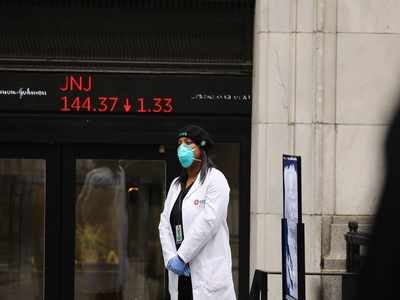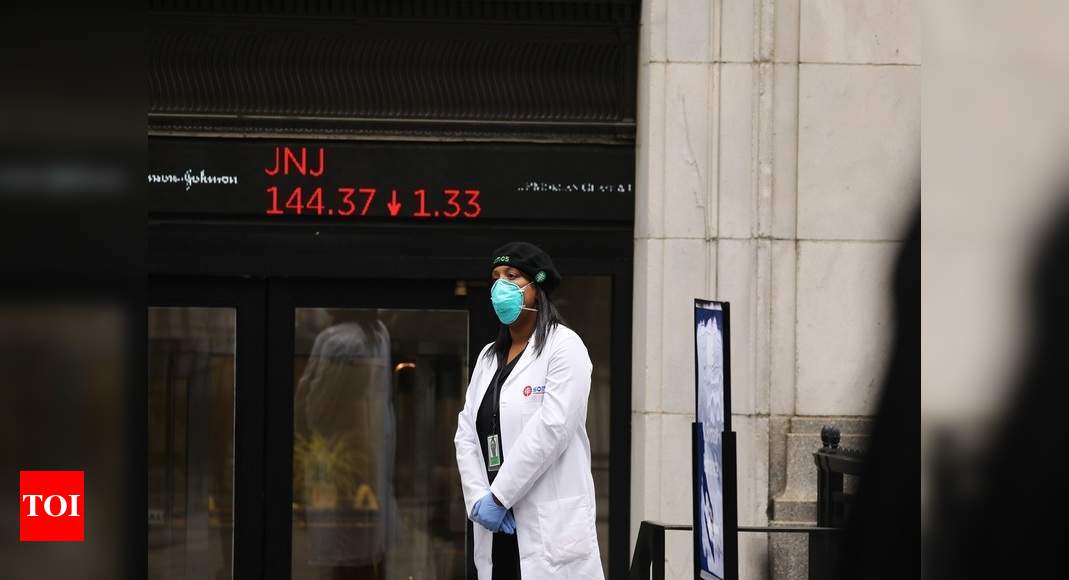
A medical worker stands at the entrance to the New York Stock Exchange (NYSE) on the first day that traders ar…Read More
The world’s governments and central banks are shifting from rescue to recovery mode as the deepest slump since the Great Depression shows signs of bottoming out.
After rolling out trillions of dollars worth of measures to prevent their economies and markets from collapsing, they are now doubling down with even more spending to backstop a recovery as coronavirus lockdowns ease. In what counts for good news these days, Bloomberg Economics’ global GDP growth tracker showed economies contracted at an annualized rate of 2.3% in May, less than the 4.8% slump in April.
“Policy makers are moving from triage to recovery,” said Deutsche Bank Securities Chief Economist Torsten Slok. “They are realizing that more fiscal support will be needed to households and small businesses to prevent this liquidity crisis from turning into a solvency crisis.”
The new wave of stimulus has both governments and central banks moving in sync to continue flooding lenders, markets and companies with cheap credit at an unprecedented pace.
The European Central Bank last week expanded its asset purchases by 600 billion euros ($677 billion) to 1.35 trillion euros, and extended them until at least the end of June 2021. And Germany’s government agreed another 130 billion-euro fiscal stimulus push and said it will back a proposed new 750 billion-euro European Union recovery fund.
“Action had to be taken,” EC

